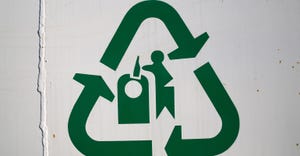September 11, 2013
As energy prices have increased, the search for alternative energy and fuel production methods has broadened. Municipal solid waste (MSW) is a promising alternative energy source because of its abundance and comparatively low cost. Currently the most common MSW energy recovery processes that produce fuel (i.e. compressed/liquefied natural gas) or electricity are landfill gas-to-energy (LFGTE), waste-to-energy (WTE) and, to a lesser extent, anaerobic digestion.
However, an MSW-derived feedstock also can be converted to biofuels and electricity via thermal conversion technologies such as gasification and Fischer-Tropsch (FT) processes. Though such fuel production from MSW is technically feasible, no research has explored the environmental impacts associated with the creation and combustion of fuel from MSW. Moreover, little information exists that compares environmental impacts of a waste conversion process such as gasification to current energy recovery processes from MSW, namely LFGTE and WTE.
Recent research conducted by North Carolina State University and supported by the Environmental Research and Education Foundation (EREF) represents one of the first comparisons between waste conversion, LFGTE and WTE. Researchers used the science of life cycle assessment (LCA) to compare processes used to transform MSW to fuel, estimate energy production (e.g. syngas yield, electricity generation, fuel production), and calculate associated environmental impacts.
The study assumed two possible MSW management scenarios: one including recycling, representative of current management practices, and one excluding recycling under the assumption that implementation of waste conversion technology would minimize the need for recycling, similar to the manner in which MSW is managed in some communities served by WTE. Conventional gasification followed by a Fischer-Tropsch reaction was used as a representative thermal waste conversion process given that this method generally allows for higher biofuel production capability compared to other waste conversion technologies.
Results from the research included an energy analysis for waste conversion that computed the percentage of energy consumption for key processes, such as: pre-processing of MSW into a refuse derived fuel (18 percent), gasification and Fischer-Tropsch (12 percent), syngas processing (68 percent), and transport/refining of biofuels produced (2 percent). The analysis showed that under a typical MSW management scenario that includes curbside recycling, net electricity production was highest using WTE – 474 kilowatts per hour per ton of MSW (kW-hr/ton MSW) – followed by 145 kW-hr/ton MSW for LFGTE and 114 kW-hr/ton MSW for gasification. However, gasification also resulted in an estimated liquid biofuel production of 32 gallons of gasoline/diesel fuel per ton of collected MSW.
From an emissions standpoint, all energy recovery processes (WTE, LFGTE, gasification) had negative global warming potentials. However, net global warming potential was most negative for gasification -821 pounds of carbon dioxide equivalent per ton of MSW (lb CO2-e/ton MSW) indicating it had the larger environmental benefit compared to WTE (-577 lb CO2-e/ton MSW) and LFGTE (-573 lb CO2-e/ton MSW).
The study provides a number of conclusions that can be used to further explore the potential of waste conversion:
Waste conversion has environmental benefits, but while the technology has been used for other feedstocks, it remains as yet unproven for MSW at commercial scale.
Fuel and electricity yields for gasification estimated in the study require demonstration at field scale.
Information provided in the study can be used to conduct an economic analysis as data becomes available
While some LCA models include an economic component that allows for a cost-benefit analysis to be conducted, this aspect was not part of this research and was not included because accurate economic data from scaled waste conversion facilities is simply not available.
Collectively, this effort expands current knowledge on the use of MSW as a feedstock for conversion technologies and provides one of the first benchmarks for comparison to existing technologies already in play. A report on this research is available from EREF (www.erefdn.org). Funding for this work was provided by the North Carolina Biofuels Center.
You May Also Like


